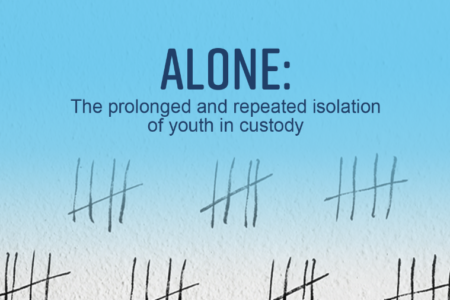Editorial: Something new on the long, bumpy, unfinished road to electoral reform
Canadians have not managed to forge a route to electoral reform yet, federally or provincially – despite at least 17 reports over the years, starting in 1923, all of which have recommended some form of proportional representation. For a list, with brief explanations and the outcomes, click this link.
When BC voters were given a chance to vote for a form of proportional representation in 2005, over 57.69% voted in favour of it – but the government had set a high threshold of 60%, so it was deemed to have failed.
Another referendum in BC in 2009 failed more decisively, with only 39% voting in favour of change.
Last year’s referendum, perhaps by offering too complex a question and too uncertain an outcome for many voters, had a similar outcome: only 38.7% of the votes were cast in favour of proportional representation.
Perhaps ironically, the percentage of votes in favour of proportional representation, which has been called a “decisive defeat,” is similar to the percentage of votes in favour of many parties who have won a majority of seats in their respective legislatures.
The current governing party in Quebec won 59% of the seats in the Quebec National Assembly with 37.42% of the votes cast. That party, the Coalition Avenir Quèbec, campaigned on a promise to bring in proportional representation. Whether the party keeps that promise or not remains to be seen.
Prince Edward Island will have another referendum on proportional representation this year, with its next provincial election in October.
Now there’s a different approach in the works.
Canadians are historically less litigious than our neighbours to the south, but when all else fails, people who think they have the right on their side sometimes resort to the judicial system, hoping that the courts will agree with them.
Two organizations with members who think that electoral reform in Canada is long overdue are planning a joint appeal to the courts, on the basis that the current “first-past-the-post” electoral system is unconstitutional in a country with multiple political parties.
How can our electoral system be unconstitutional, you ask?
Section 3 of the Canadian Constitution states:
“Every citizen of Canada has the right to vote in an election of the members of the House of Commons or of a legislative assembly and to be qualified for membership therein.”
Section 3 is one of the provisions in the Charter that cannot be overridden by Parliament or a legislative assembly under Section 33 of the Charter — the “notwithstanding” clause.
The Supreme Court of Canada has discussed the meaning of Section 3 in cases brought before it, finding that it signifies far more than the mere ability to place a ballot in a ballot box or to stand for election to public office.
Justice Beverley McLachlin, as she was then, wrote in the majority decision in Reference re Provincial Electoral Boundaries (Sask.), [1991] 2 S.C.R. 158:
“It is my conclusion that the purpose of the right to vote enshrined in s. 3 of the Charter is not equality of voting power per se, but the right to “effective representation”. Ours is a representative democracy. Each citizen is entitled to be represented in government. Representation comprehends the idea of having a voice in the deliberations of government as well as the idea of the right to bring one’s grievances and concerns to the attention of one’s government representative.”
Justice Frank Iacobucci of the Supreme Court of Canada, writing for the majority, quoted this section with approval in the Figueroa case in 2003, and more:
“The purpose of s. 3 of the Charter is, then, to grant every citizen of this country the right to play a meaningful role in the selection of elected representatives who, in turn, will be responsible for making decisions embodied in legislation for which they will be accountable to their electorate.” [Emphasis added.]
The Figueroa case determined that it was unconstitutional to require a political party to run 50 or more candidates to qualify for, and retain, official party status and the perks that accompany that status.
Proponents of electoral reform can find many statements in this case to support their views.
In paragraph 37 of the Figueroa judgment, Justice Iacobucci touched on the topic of electoral systems, and said,
“But the fact that our current electoral system reflects certain political values does not mean that those values are embedded in the Charter , or that it is appropriate to balance those values against the right of each citizen to play a meaningful role in the electoral process. After all, the Charter is entirely neutral as to the type of electoral system in which the right to vote or to run for office is to be exercised. This suggests that the purpose of s. 3 is not to protect the values or objectives that might be embedded in our current electoral system, but, rather, to protect the right of each citizen to play a meaningful role in the electoral process, whatever that process might be.” [Emphasis added.]
In the partial dissent on the Figueroa case, Justice LeBel also discussed the electoral system, stating in Paragraph 154,
“Perhaps the most significant example is the structure of our system of voting. Canada is one of only a few major democracies to retain the Westminster first-past-the-post (“FPTP”) system. Many other democratic states use proportional representation or some form of mixed system. In comparison with those systems, FPTP creates a bias in favour of mainstream parties that represent the aggregated views of a broad section of society, and against smaller parties which provide a vehicle for dissent, advocate particular issues, or may be the precursors of mainstream political movements of the future. It does not make it impossible for the latter to participate, but it makes it more difficult for them to compete. Of the electoral systems used in democratic countries, FPTP is the least “fair” or proportional, in that it distorts the translation of votes into seats in favour of the largest parties (H. MacIvor, “A Brief Introduction to Electoral Reform”, in Milner, Making Every Vote Count: Reassessing Canada’s Electoral System (1999), 19, at p. 21).” [Emphasis added.]
In Paragraph 42, the majority judgment goes on to discuss the role of “marginal” parties in government:
“For example, marginal or regional parties tend to dissent from mainstream thinking and to bring to the attention of the general public issues and concerns that have not been adopted by national parties. They might exert less influence than the national parties, but still can be a most effective vehicle for the participation of individual citizens whose preferences have not been incorporated into the political platforms of national parties. It is better that an individual citizen have his or her ideas and concerns introduced into the open debate of the electoral process by a political party with a limited geographical base of support than not to have his or her ideas and concerns introduced into that debate by any political party at all.”
But the judgment also contains statements that could be seen as supportive of the first-past-the-post electoral system. One of the arguments often heard in favour of proportional representation systems is that so many votes in a first-past-the-post system are “wasted” in that they end up not electing anyone. But Paragraph 45 of the majority judgment in Figueroa seems to refute this argument:
“In each election, a significant number of citizens vote for candidates nominated by registered parties in full awareness that the candidate has no realistic chance of winning a seat in Parliament — or that the party of which she or he is a member has no realistic chance of winning a majority of seats in the House of Commons. Just as these votes are not “wasted votes”, votes for a political party that has not satisfied the 50-candidate threshold are not wasted votes either. As a public expression of individual support for certain perspectives and opinions, such votes are an integral component of a vital and dynamic democracy.”
But is that enough? If the Charter challenge to our current electoral system makes it into the court system, rest assured that lawyers on both sides will mine previous decisions of the Supreme Court of Canada for statements in favour of their clients’ side. That’s because our judicial system is built upon “precedent” – decisions and statements in support of those decisions made by judges in former cases.
Here’s another nugget from Paragraph 51 of Figueroa that will very likely be cited if the case goes forward:
“It is not enough to offend s. 3 that the legislation differentiates between one citizen and another, or one political party or another. It also is necessary that the differential treatment have an adverse impact upon the applicant’s right to play a meaningful role in the electoral process.”
That will lead to discussions of what a “meaningful role” is, and whether it is enough to be able to express one’s political opinions by voting for candidates and parties that end up with no representation – no voice and no vote — in Parliament.
Who is hoping to bring this Charter challenge to the courts? Two not-for-profit organizations: Springtide and Fair Voting BC, and they are seeking funding from supporters of electoral reform to help with the expenses of the case.

























